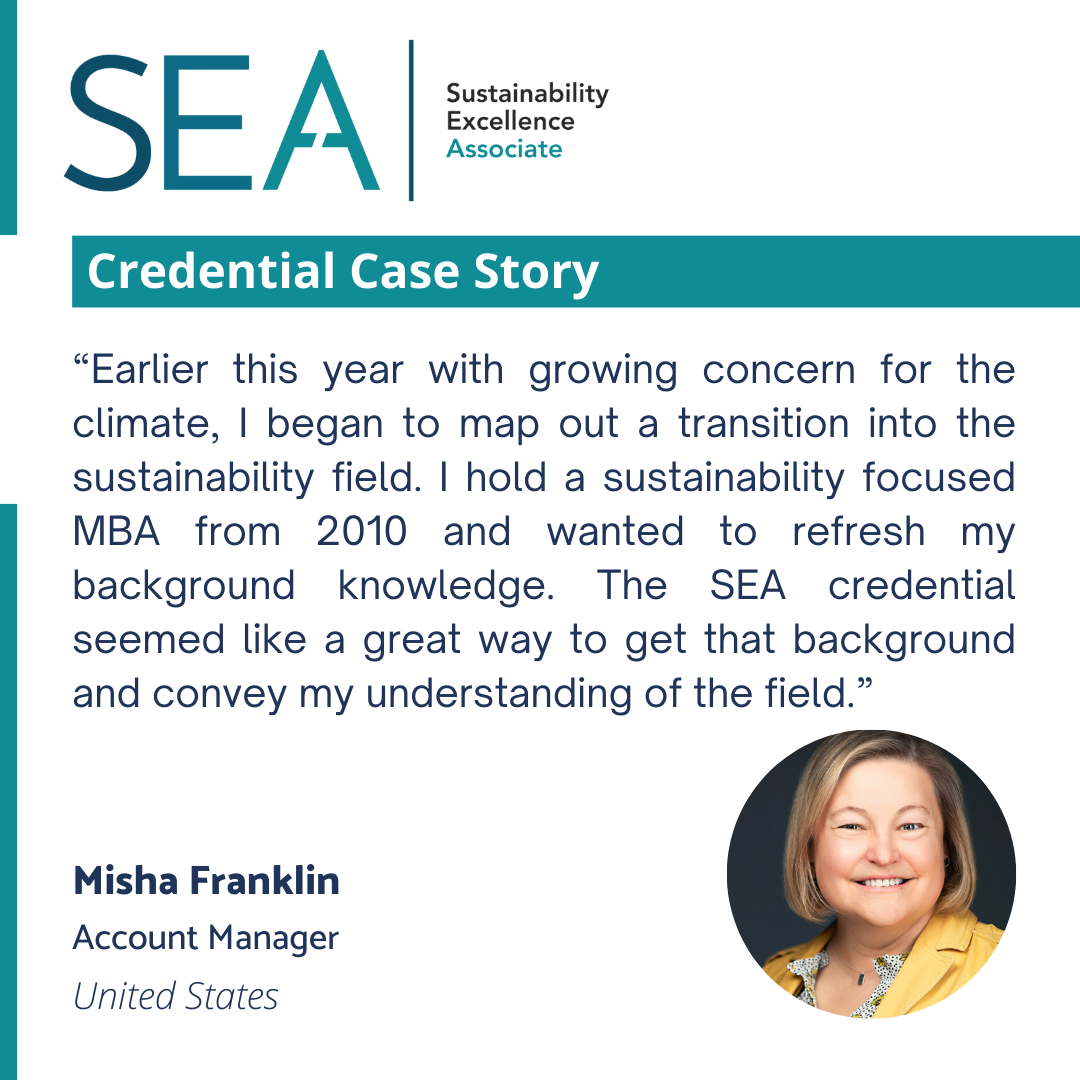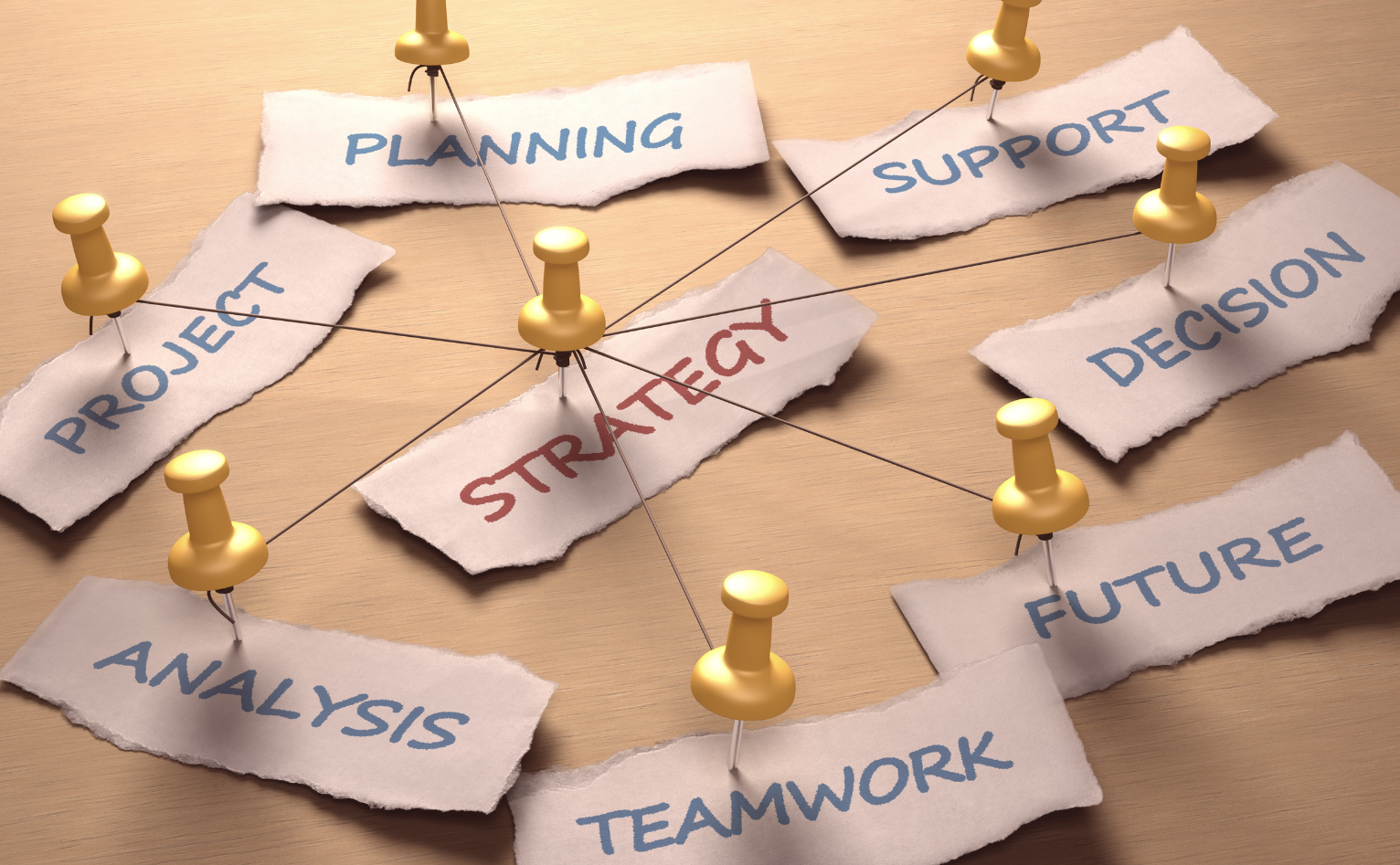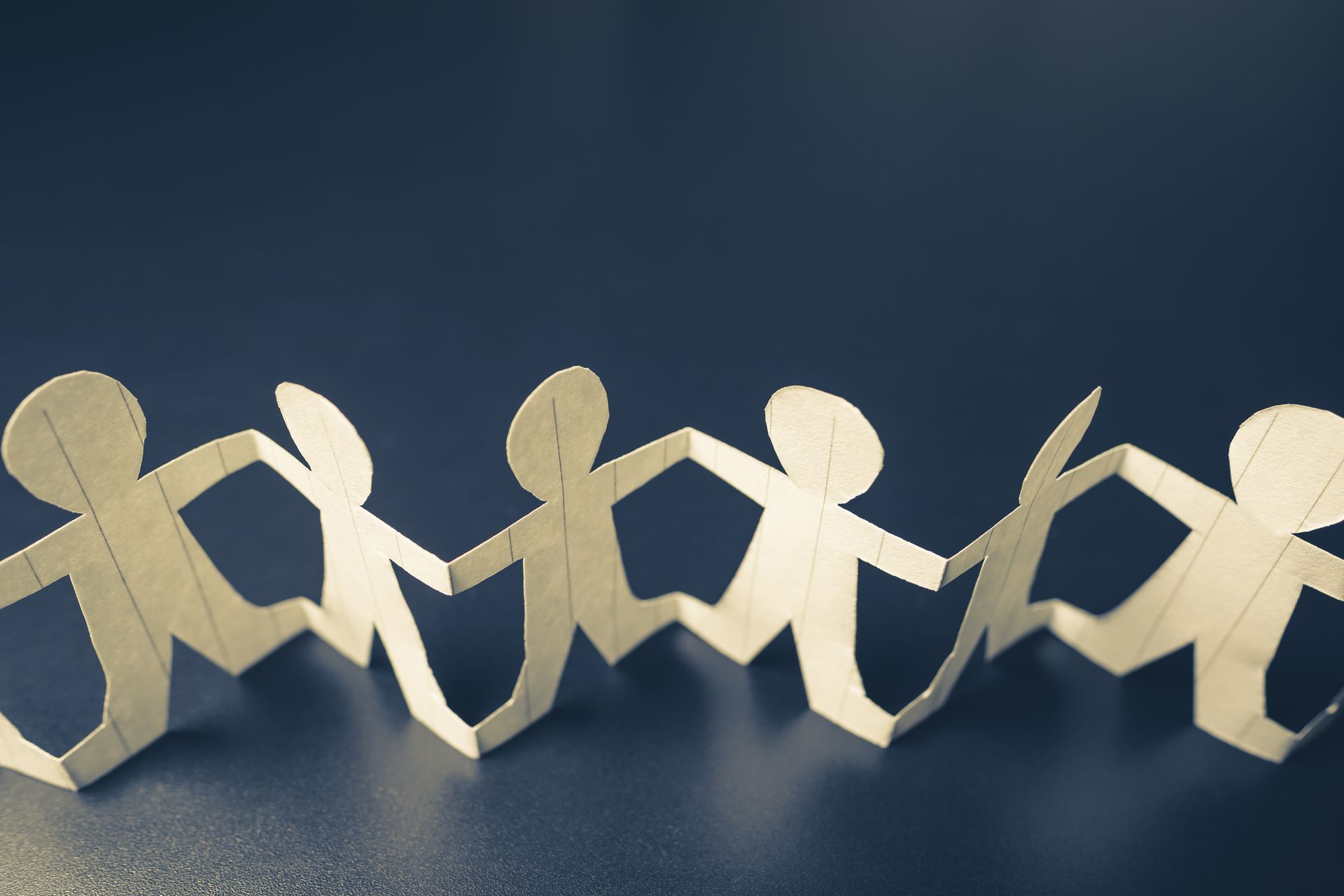What brought you to this moment in your career where the Sustainability Excellence Associate (SEA) made sense for you?
Over my lifetime I’ve seen the impacts of the climate crises in the news, but also nearby through fatally hot summers, weeks of wildfire smoke in the sky, and living in a ‘be-ready’ evacuation zone near the Camp Creek wildfire two years ago. My work history includes a mix of people and technical skills: help desk, software, system, and business analyst, project management, and I’ve spent the last 5 years as a sales engineer for a small B2G software company. But earlier this year, with growing concern for the climate, I began to map out a transition into the sustainability field.
I hold a sustainability focused MBA from 2010 and wanted to refresh my background knowledge. The SEA credential seemed like a great way to get that background and convey my understanding of the field. Now I feel ready to transition my hard and soft skills to an organization committed to sustainable business practices, and creating positive change for its employees, community, and the environment.
How are you putting the knowledge, skills, and ability demonstrated in the SEA to work in your career (or work) today?
As I continue my job search, I’ve started volunteering with the Citizen’s Climate Lobby. I will continue networking with others in the sustainability field in Portland, Oregon and Vancouver, Washington, looking for ways to positively impact my community. The SEA certification educated me on the array of problems humans have caused the planet, as well as the best tools and frameworks available to combat these issues. I know that I have plenty of experience to gain in the field, but I am also confident that I have a good foundation to base additional learning upon.
For those starting out in the sustainability field, what advice do you have for them?
I can’t claim any great knowledge here, as I am also new to the field, but I can pass on some advice I found helpful: volunteer in an organization that you are passionate about. You can make an impact, network with like-minded people, learn about new opportunities, and establish yourself as a contributor, because you’ll be contributing! By putting this advice into practice, I got connected with a local climate group and learned about a Sustainability Conference in Portland. I attended the 1-day event, heard many inspiring speakers, and learned about companies in the northwest working on real solutions. I hope to have an exciting update in the next half year, that I’ve found a great position where I am supporting an organization or company to achieve their sustainability goals. Until then, I’ll get additional volunteer training so I can better contribute to organizations that are aligned with my values and passions.




